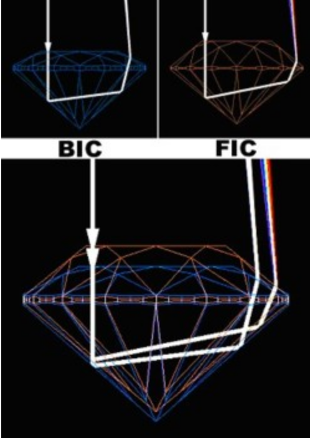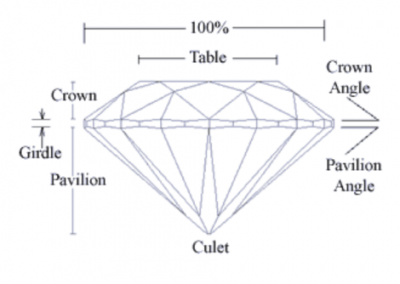Learn: Diamonds > Crown and Pavilion Angles
Introduction
Crown & Pavillion Angles
In 1992 Garry Holloway discovered an inverse relationship between a diamond’s crown and pavilion angles (the top and bottom facet angles). Our work with diamond cutters has given them new freedom to vary proportions to suit the rough diamond and achieve a beautiful gem. The shallow stone on the left has more light return and the steeper stone on the right shows more fire. Garry named them BIC – Brilliant Ideal Cut and FIC – Firey Ideal Cut.
The overlain profiles show how similar the light paths are, even though the crown and pavilion angles vary considerably.
This is common sense, but common sense is not common. Many labs use a minimum-maximum crown and pavilion angle-based grading system that penalizes cutters who produce such diamonds. Fortunately, this has changed with the American Gem Society Lab is adopting the inverse proportion approach from the 1 st of June 2005 .
If you know a diamond’s proportions, you can use Holloway Cut Advisor (HCA) to check if it has ideal
The Holloway Cut Adviser is a rejection tool to help you narrow your search for only round diamonds potential Light Return, Fire, Scintillation and Spread based on the rounded proportion information from a grading report. HCA does not use symmetry, polish and minor facets info.


